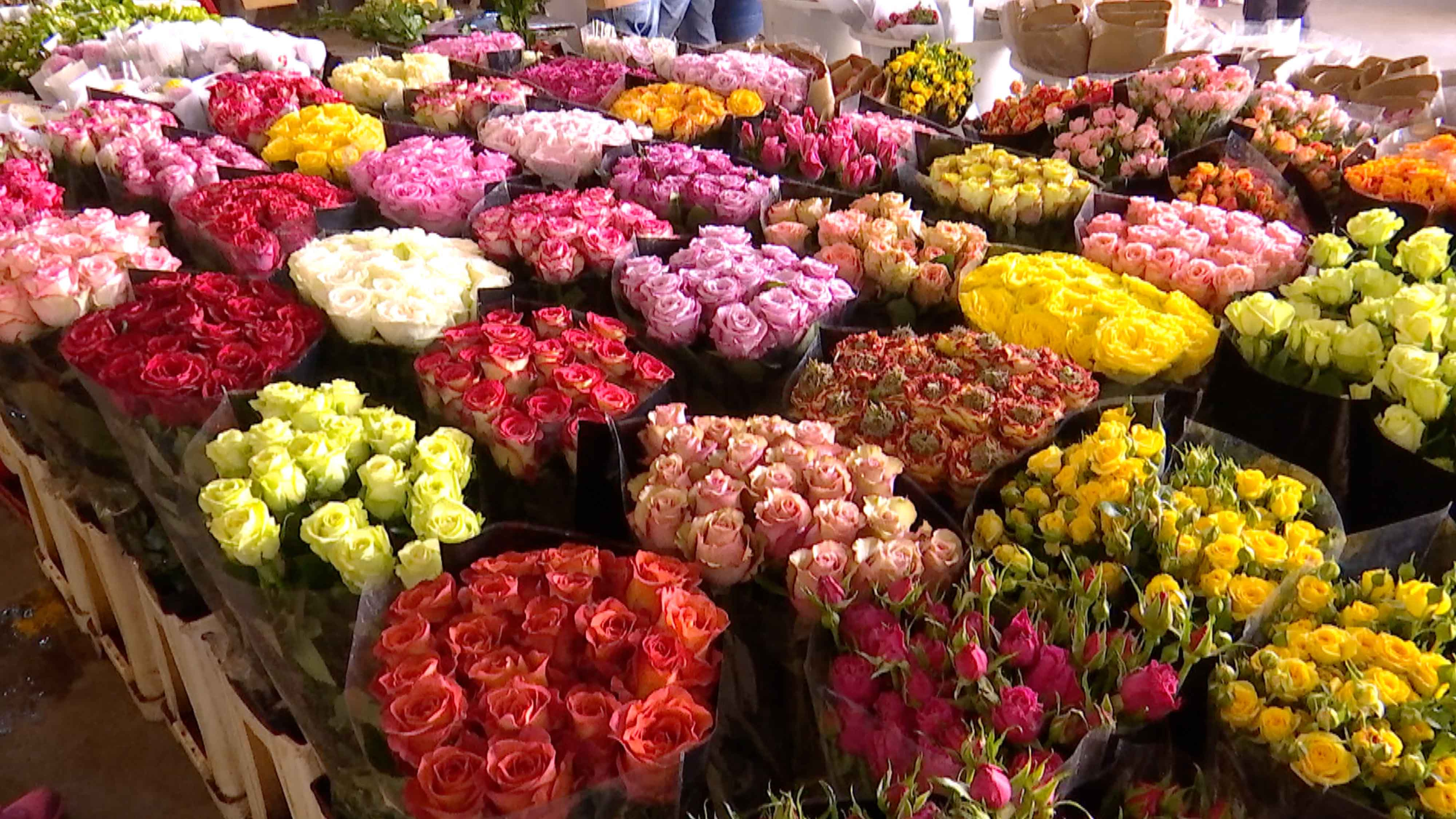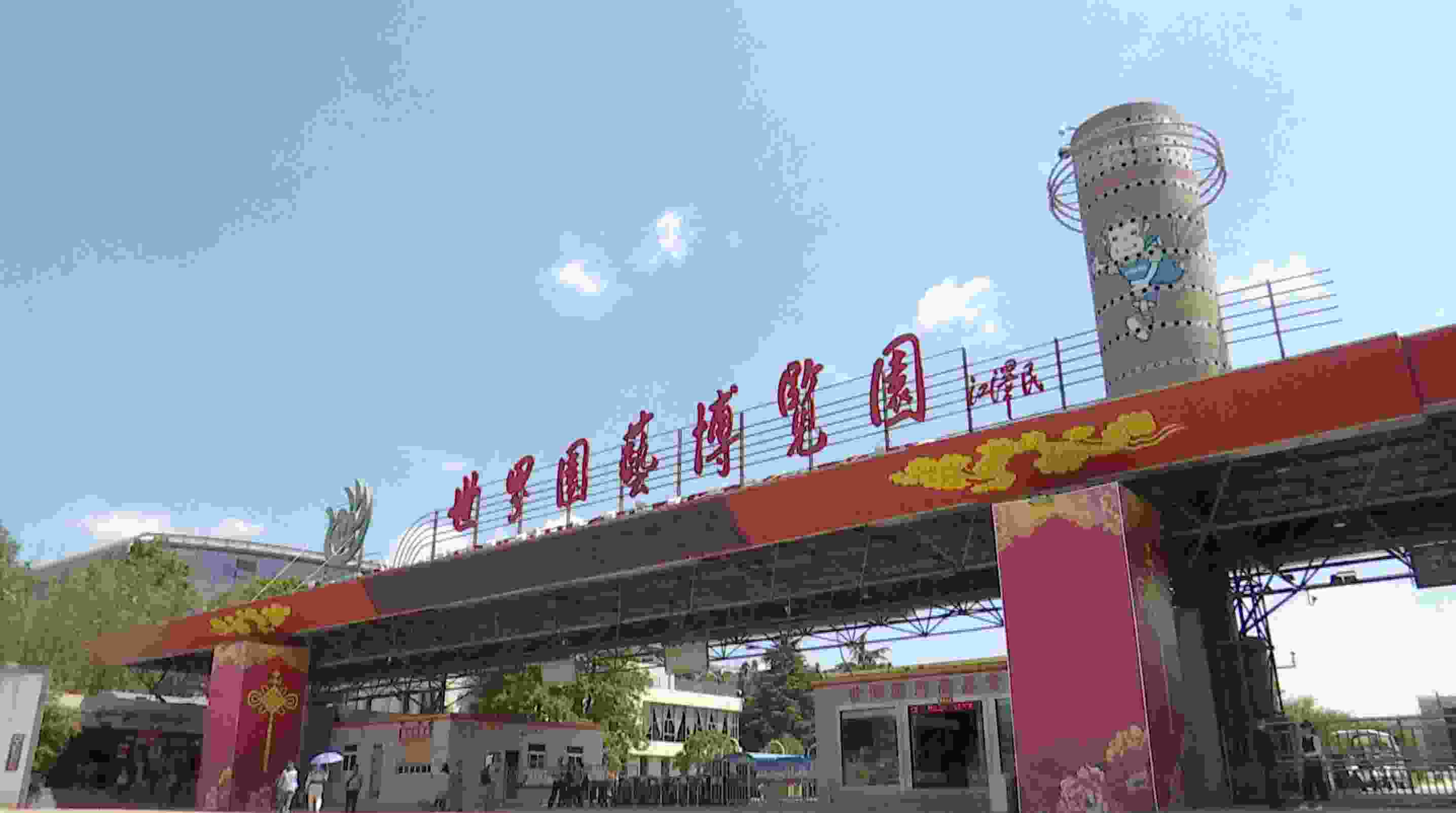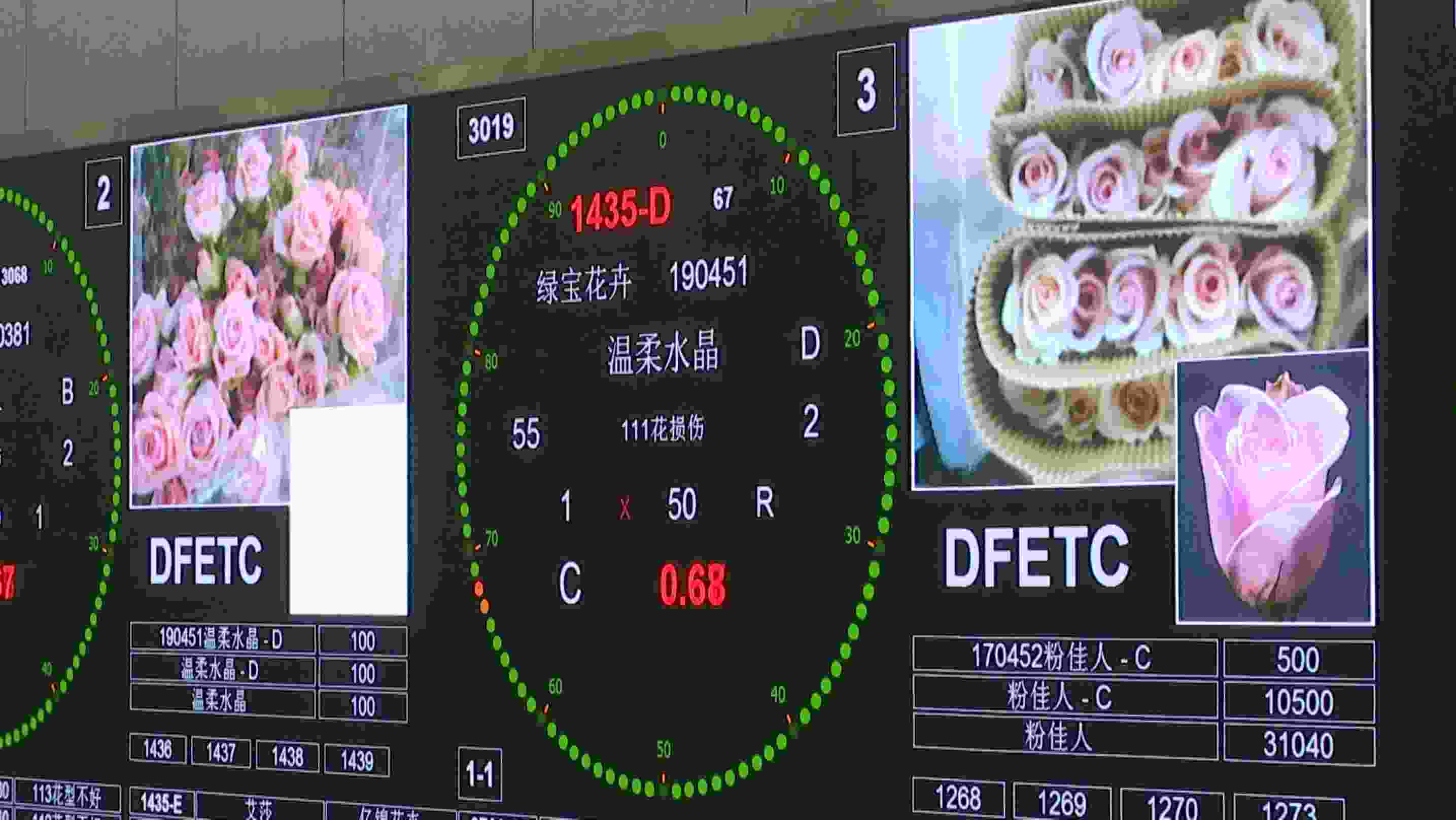
Money Stories
09:59, 21-Apr-2019
China's Kunming remains one of world's top flower markets
Updated
14:52, 21-Apr-2019
Xu Xinchen, Wu Siyi
03:08

Thousands of vendors come to the Dounan International Flower Center in Kunming, the capital city of Southwest China's Yunnan Province, on a daily basis. And the market is divided into a retail session and a wholesale session.
On a good day, retail sales for each shop can amount to some 2,000 flowers. When the night falls, the wholesale starts. Some 20,000 buyers will rush into the market by then, and millions of flowers can be sold within the first hour.
As China’s largest flower trading center — sometimes regarded as Asia's largest — 70 percent of flowers sold in China come from Kunming’s Dounan. And, the center sold almost seven billion flowers last year.
While flower growing has deep roots in the region, the boom came after the 1999 World Horticultural Expo held in Kunming — an opportunity that let more people from both home and abroad know more about the flowers of the city. The Kunming Expo was the first time for the World Horticultural Expo being held in China. It was ranked A1, the highest level possible.

The front gate of the 1999 World Horticultural Expo site in Kunming. Twenty years ago, the park welcomed some 120,000 visitors on the peak day. /CGTN Photo
The front gate of the 1999 World Horticultural Expo site in Kunming. Twenty years ago, the park welcomed some 120,000 visitors on the peak day. /CGTN Photo
"The 1999 Expo helped the world learn more about horticulture in China and sell Chinese flowers and plants globally. And, it has indeed helped the tourism industry — a nice stream of income," said Bao Guikun, the general manager of the Yunnan Expo Tourism Scenic Investment and Management — the company that owns and manages the 1999 Expo Park.
The site in Kunming still attracts two to three million visitors a year. The retail market for local flowers also sees benefits from boosted tourism — the inflow of tourists visiting Dounan flower center has maintained a double-digit growth rate, reaching over 1.1 million last year.
It does not end there. In 2015, a brand new electronic trading center was established in Dounan. The system uses a similar mechanism to flower auctions in the Netherlands — starting from a higher asking price and bidding for a lower price. The auction starts in the afternoon and each deal will be settled within five seconds.

The Dounan Flowers E-Trade Center or DFETC uses the Dutch auction — starting from a higher asking price to lower. Each afternoon, some 250 bidders will come into the bidding hall. /CGTN Photo
The Dounan Flowers E-Trade Center or DFETC uses the Dutch auction — starting from a higher asking price to lower. Each afternoon, some 250 bidders will come into the bidding hall. /CGTN Photo
"Fresh cut flowers are perishable commodities and trading speed is very important. If the trading takes so much time, fresh flowers will not reach the end customers fresh," said Zhang Rui, the vice general manager of the Dounan Flowers E-Trade Center.
Zhang also says that the firm is already developing mobile applications to allow people outside the region to participate. The goal is to improve logistics and standardize flower trade in China.
While the Dounan International Flower Center is Asia's largest and the world's second largest by volume, only 10 percent of Dounan's flowers reach overseas markets. Experts say the challenges facing Chinese flowers are logistical hang-ups and the lack of quality standards that can compete with their Dutch and German counterparts.

SITEMAP
Copyright © 2018 CGTN. Beijing ICP prepared NO.16065310-3
Copyright © 2018 CGTN. Beijing ICP prepared NO.16065310-3